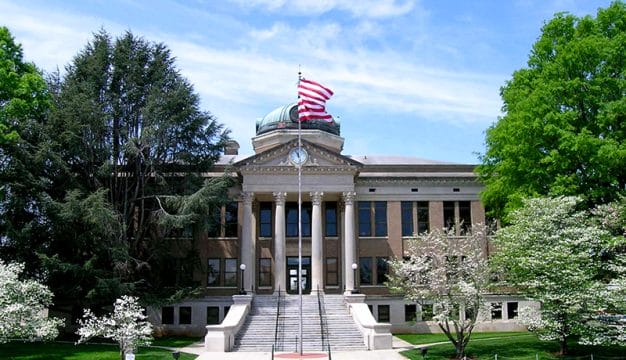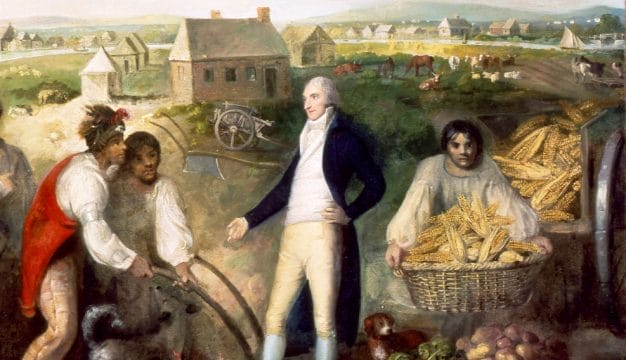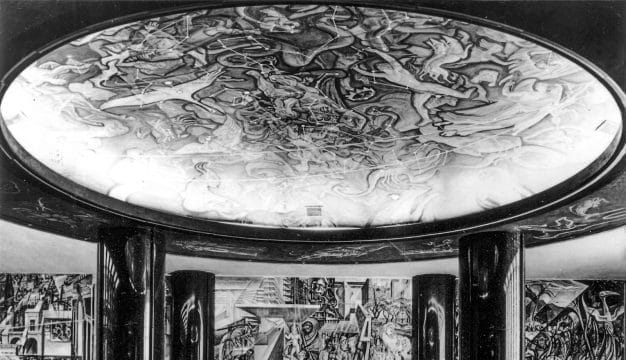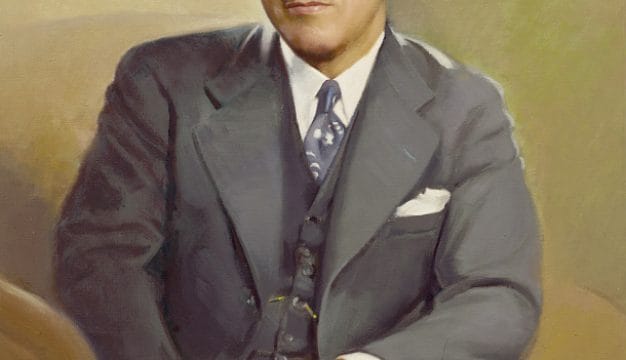Tuskegee History Center
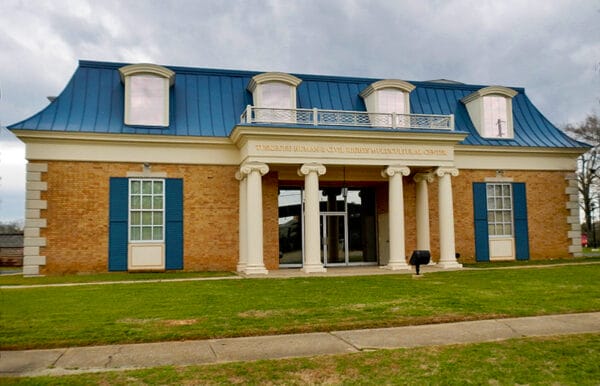 Tuskegee History Center
The Tuskegee History Center, formerly known as the Tuskegee Human and Civil Rights Multicultural Center, is located in Tuskegee, Macon County. The center, which is part of the U.S. Civil Rights History Trail, was established in 1997 to honor victims of the Tuskegee Syphilis Study. It has expanded its mission to include the preservation and recognition of east-central Alabama’s Native American, European American, and African American heritage. The center showcases these cultural histories to illustrate moments of sacrifice, struggle, and perseverance in Macon County history and also acts as Tuskegee and Macon County’s official welcome center. Iconic civil rights attorney Fred Gray serves as president and helps raise funds for the center.
Tuskegee History Center
The Tuskegee History Center, formerly known as the Tuskegee Human and Civil Rights Multicultural Center, is located in Tuskegee, Macon County. The center, which is part of the U.S. Civil Rights History Trail, was established in 1997 to honor victims of the Tuskegee Syphilis Study. It has expanded its mission to include the preservation and recognition of east-central Alabama’s Native American, European American, and African American heritage. The center showcases these cultural histories to illustrate moments of sacrifice, struggle, and perseverance in Macon County history and also acts as Tuskegee and Macon County’s official welcome center. Iconic civil rights attorney Fred Gray serves as president and helps raise funds for the center.
The center was founded by Gray and study survivor Herman Shaw as a memorial to the victims of the Tuskegee Syphilis Study, conducted between 1932 and 1972. Gray had led the successful legal fight for restitution for the victims and requested the construction of a permanent physical structure to recognize their contributions and sacrifices as well as those involved in raising the awareness of human and civil rights. Gray and others were prompted by Pres. Bill Clinton’s May 1997 apology on behalf of the United States for the wrongs done by the study. At the time, President Clinton also announced a grant initiative to establish the National Center for Bioethics and Health Care in Research and Healthcare at Tuskegee as well as transform the Infantile Paralysis Hospital into what is now the Legacy Museum of Tuskegee University. The following year, the Alabama Exchange Bank deeded a Southtrust Bank building to the center to use as a museum in which to showcase interpretive exhibits related to the study. As the center’s mission evolved over the years, it became known as the Tuskegee History Center for its increasing focus on historical education and preservation. In 2002, the Macon County Commission named it the official visitor center of Macon County, and then in 2003 it was designated the official visitor center of Tuskegee.
The center presented its first temporary exhibit in 2001 on the Tuskegee Syphilis Study. Titled “A Greater Good,” the exhibit featured interactive elements such as videos, photographs, and artifacts. More recent exhibits continue to focus on the Syphilis Study but also emphasize Tuskegee’s and Macon County’s leadership in the education of African Americans and southern women since the 1800s. Additional exhibits have highlighted the role Macon County has played in African American healthcare and medical research.
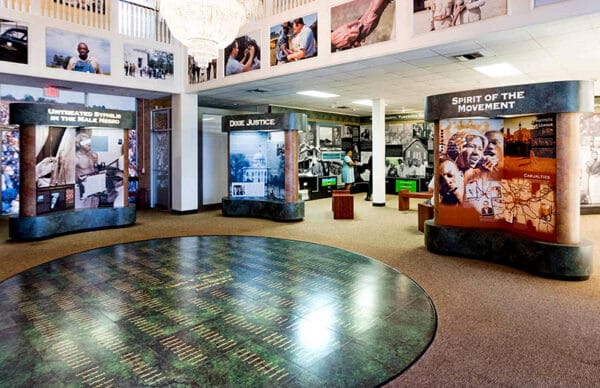 Tuskegee History Center Exhibits
The center hosts a number of educational programs and workshops every year. In 2013, it sponsored a symposium on the 50th anniversary of the Lee v. Macon County public school desegregation court case. It continues to showcase temporary exhibits and has also hosted travelling exhibits from the Smithsonian Institution in Washington, D.C., among other museums. There is a large collection of artifacts and documents pertaining to Tuskegee and Macon County history, including a replica of the Virginia cabin in which Booker T. Washington lived while he was enslaved. The U.S. Forest Service built the cabin replica on Tuskegee National Forest land and moved it to the center’s grounds. Education and community outreach are both critical elements to the center’s mission. Tuskegee history, for example, highlights the multicultural history of Macon County. As a museum, it displays the region’s successes and challenges to illustrate how the people of Macon County shaped the American South as well as United States.
Tuskegee History Center Exhibits
The center hosts a number of educational programs and workshops every year. In 2013, it sponsored a symposium on the 50th anniversary of the Lee v. Macon County public school desegregation court case. It continues to showcase temporary exhibits and has also hosted travelling exhibits from the Smithsonian Institution in Washington, D.C., among other museums. There is a large collection of artifacts and documents pertaining to Tuskegee and Macon County history, including a replica of the Virginia cabin in which Booker T. Washington lived while he was enslaved. The U.S. Forest Service built the cabin replica on Tuskegee National Forest land and moved it to the center’s grounds. Education and community outreach are both critical elements to the center’s mission. Tuskegee history, for example, highlights the multicultural history of Macon County. As a museum, it displays the region’s successes and challenges to illustrate how the people of Macon County shaped the American South as well as United States.
Visitors may learn about the region’s history through a variety of exhibits. The timeline exhibit in the “Shared Heritage Gallery” places the multicultural history of Macon County within the broader context of regional, state, and national events. Themes such as power, struggle, gender, race, violence, the environment, politics, and economics are all highlighted. Current exhibits also showcase antebellum Tuskegee, the Tuskegee Syphilis Study, and the civil rights struggles of the area with an emphasis on citizenship, voting, healthcare, education, and equality. Altogether, the center displays a powerful and compelling interpretation of Macon County.
The center is a tax-exempt 501(c) (3) non-profit that is funded by donations. It and its small staff are overseen by Fred Gray’s daughter, Deborah Gray. It is located on Elm Street in the downtown section of Tuskegee and is an attraction highlighted on the Alabama Tourism Department Civil Rights Trail. The center is open Tuesday through Saturday from 10 a.m. to 3 p.m.
Additional Resources
Fred D. Gray. Bus Ride to Justice: Changing the System by the System: The Life and Works of Fred Gray, Preacher, Attorney, Politician. Montgomery, Ala..: NewSouth Books, 2013.
